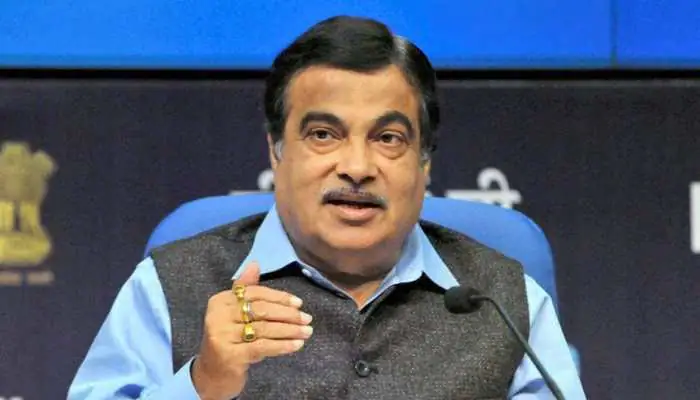Union Minister Nitin Gadkari
A total 130 agromet field units (AMFUs) have been set up in the country’s agro-climatic zones over the years in collaboration with the Indian Council of Agricultural Research. AMFUs provide advisories at the zonal level, each catering to four to five districts
New Delhi:
Union Minister Nitin Gadkari on Monday wrote to Union Minister of State for Earth Sciences Jitendra Singh, requesting the continuation of services of the 199 district agromet units that provide crucial and detailed weather-related advisories to lakhs of farmers at the block level.
In an order issued on January 17, the India Meteorological Department (IMD) said the services of district agromet units (DAMUs) will not be extended beyond the current financial year (2023-2024).
The Maharashtra-based Agrometeorological Units Association (AUA) has since written to Prime Minister Narendra Modi, Indian Council of Agricultural Research, Union Ministry of Earth Sciences and the Union Ministry of Agriculture, requesting their intervention.
In his letter to Singh, Gadkari said DAMUs prepare agromet advisories twice a week and disseminate those to farmers up to the village level. Citing a letter from the AUA, Gadkari said, ”It has been claimed that this practice has substantially benefited farmers. The applicant submits that if DAMUs are discontinued, it will have an adverse impact on agriculture production, food security and livelihood of the farming community and, thus, they should continue. You are requested to have the plea considered and extend best possible as rules with due verification.”
In 2015, the government launched the Gramin Krishi Mausam Seva (GMSV) to provide crop and location-specific detailed advisories to farmers, aiding them in day-to-day decision-making.
A total 130 agromet field units (AMFUs) have been set up in the country’s agro-climatic zones over the years in collaboration with the Indian Council of Agricultural Research. AMFUs provide advisories at the zonal level, each catering to four to five districts.
In 2018, the government decided to extend the GMSV’s reach by setting up 530 DAMUs on the premises of Krishi Vigyan Kendras.
However, the Covid pandemic impacted the process and only 199 DAMUs could be set up. Each DAMU has two employees — SMS Agromet and Agromet Observer.
Mahesh Yadulwar, a DAMU employee from Maharashtra, said, ”Compared to AMFUs, DAMUs provide block-level agromet advisories. It is like a regional newspaper that provides local news in detail. DAMUs reduced the communication gap between farmers and scientists. Farmers call us directly or post their queries on a WhatsApp group. We are available 24X7,” he said.
The decision to wind up DAMUs will not only affect the families of their 398 employees across the country but also lakhs of farmers dependent on those for crucial agromet advisories, which have helped increase their resilience against worsening weather and climate impacts, consequently reducing their losses and the claim amount under the Pradhan Mantri Fasal Bima Yojana, he said.
Officials mentioned that financial issues, including those related to the disbursement of salaries, have impacted the initiative, resulting in complaints and representations by DAMU employees to the Union Ministry of Earth Sciences and the finance and the agriculture ministries.
”The data collection is automated. The IMD analyses it and prepares forecasts centrally; DAMUs only disseminate the advisories. The agriculture ministry is responsible for the dissemination work and, therefore, it should be the nodal ministry,” a Union Ministry of Earth Sciences official said on the condition of anonymity.

